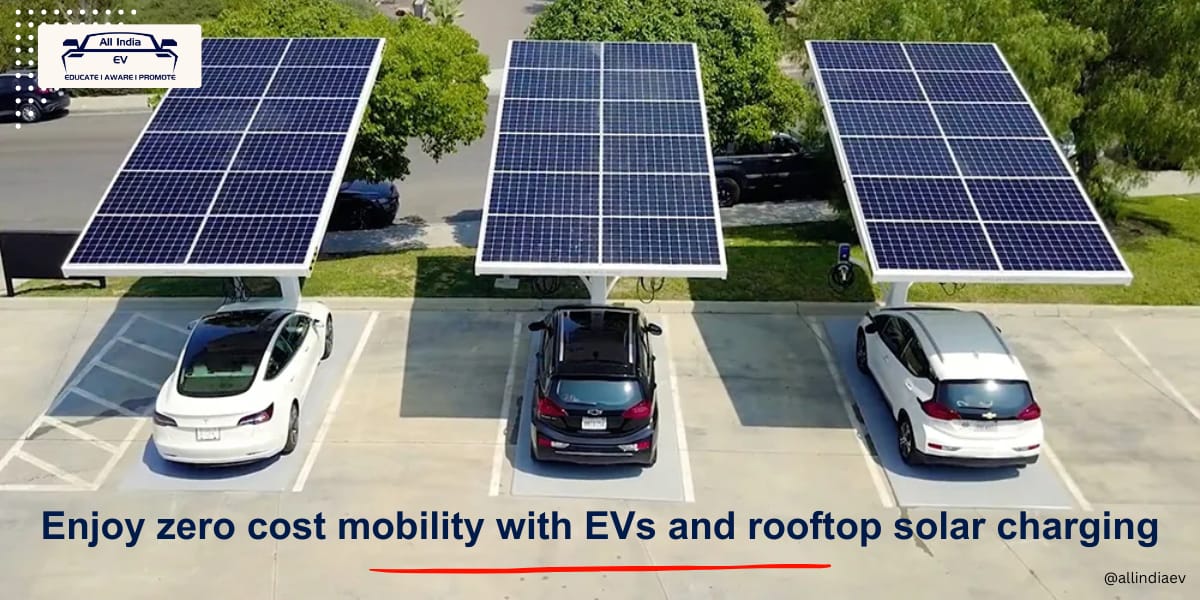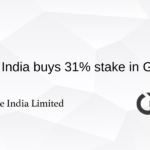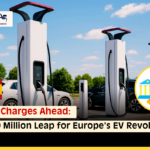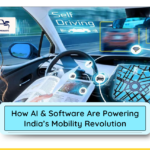
Solar-Powered Electric Vehicles in India: Drive free and Green
The combination of electric vehicles (EVs) and Solar-Powered rooftop is creating a new era of sustainable and affordable transportation. By charging EVs with solar power generated on-site, consumers can enjoy near-zero running costs, making electric mobility truly green from start to finish.
According to Randheer Singh, CEO of ForeSee Advisors, government incentives for rooftop solar installations are playing a crucial role in boosting EV adoption in India.
“Rooftop solar solutions offer a sustainable and cost-effective way for consumers to generate their own electricity, … For EV owners, the ability to charge their vehicles with solar power not only reduces dependence on the grid but also significantly lowers the total cost of ownership.”
Randheer Singh, CEO of ForeSee Advisors
Sunlight and Speed: The Synergy of Rooftop Solar and EVs in India
The Indian sun, a relentless source of energy, is about to play a pivotal role in the country’s transition to electric vehicles. With the government’s renewed focus on harnessing solar power through rooftop installations, India is poised to significantly expand its renewable energy capacity. But how does this align with the parallel push for electric vehicles?
The answer lies in the synergy between these two initiatives. Rooftop solar energy generation offers a sustainable and cost-effective way to charge electric vehicles. By generating their own electricity, EV owners can reduce their reliance on the grid and, in turn, significantly lower their total cost of ownership. This is especially appealing as the prices of electric vehicles continue to drop, making them increasingly competitive with traditional gasoline and diesel-powered cars.
Furthermore, the government’s generous subsidies and incentives for installing rooftop solar panels have made it even more attractive for consumers to adopt this technology. This combination of factors—lower EV prices, government support for rooftop solar, and the environmental benefits of electric mobility—is creating a compelling case for the widespread adoption of EVs in India. As the country embraces the sun’s abundant energy, it’s also paving the way for a cleaner, more sustainable future.
Solar Savings: The Pradhan Mantri Surya Ghar Muft Bijli Yojana
The Pradhan Mantri Surya Ghar Muft Bijli Yojana offers a compelling incentive for Indian households to adopt rooftop solar systems. One of the key features of the scheme is the availability of collateral-free, low-interest loans of around 7% for the installation of residential solar systems up to 3 kW. This interest rate is linked to the Reserve Bank of India’s Repo Rate, ensuring competitive financing options for consumers.
Beyond the financial benefits, the scheme also promises substantial savings on electricity bills. Households consuming up to 300 units per month can expect to save approximately Rs 15,000 annually by installing a 3 kW rooftop solar system. This translates to monthly savings of around Rs 1,265 even after factoring in loan repayments. For households not availing loans, the savings will be even higher.
The scheme aims to reach one crore households and has been allocated a significant budget of Rs 75,021 crore. To further encourage adoption, the government is providing subsidies of up to 60% for solar systems up to 2 kW capacity and 40% for systems between 2 kW and 3 kW. With these subsidies, installing a rooftop solar system becomes even more financially attractive for Indian households.
Solar Powering Electric Dreams: India’s Path to Net Zero
India’s rooftop solar potential is vast, estimated at a staggering 637 GW. As Bhawna Tyagi from CEEW points out, harnessing this energy can significantly address the growing residential electricity demand, reduce the financial burden on distribution companies, and lessen our dependence on fossil fuels. For a prosperous and sustainable India, empowering households with rooftop solar is essential.
Electric vehicles (EVs), while still a small portion of the Indian automotive market, play a crucial role in reducing carbon emissions. The government’s ambitious target of 30% EV penetration by 2030 aligns with India’s broader commitment to the UN Sustainable Development Goals. By promoting EV adoption, we can address issues such as air pollution, energy security, and economic stability.
To further incentivize rooftop solar installations, many states are offering additional subsidies to households. Progressive states like Gujarat, Maharashtra, Kerala, Karnataka, and Rajasthan have already implemented such policies, and more are expected to follow suit.









